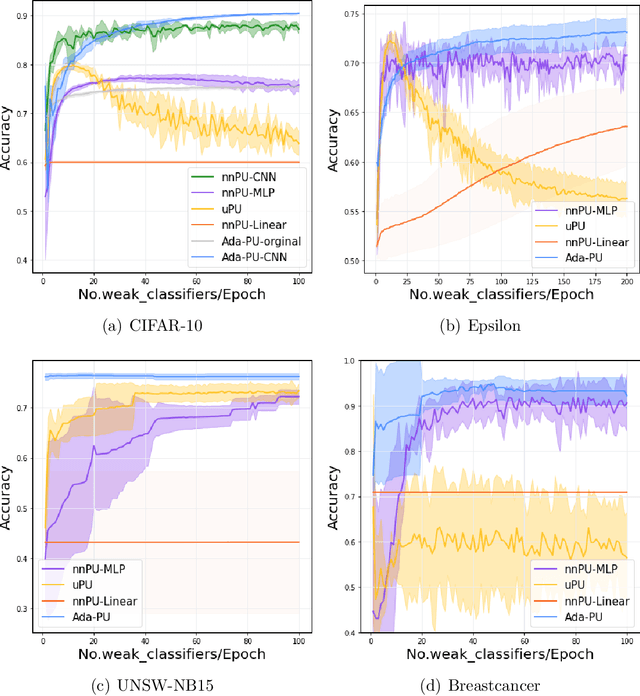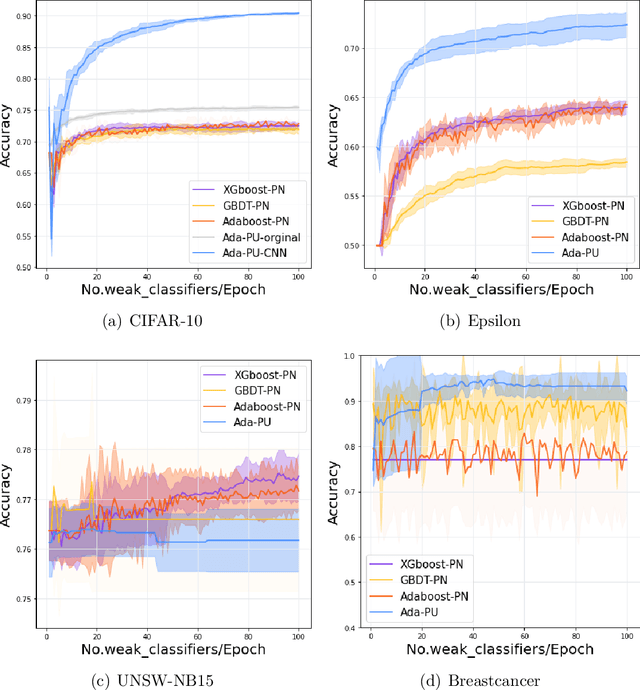A Boosting Algorithm for Positive-Unlabeled Learning
Paper and Code
May 19, 2022



Positive-unlabeled (PU) learning deals with binary classification problems when only positive (P) and unlabeled (U) data are available. A lot of PU methods based on linear models and neural networks have been proposed; however, there still lacks study on how the theoretically sound boosting-style algorithms could work with P and U data. Considering that in some scenarios when neural networks cannot perform as good as boosting algorithms even with fully-supervised data, we propose a novel boosting algorithm for PU learning: Ada-PU, which compares against neural networks. Ada-PU follows the general procedure of AdaBoost while two different distributions of P data are maintained and updated. After a weak classifier is learned on the newly updated distribution, the corresponding combining weight for the final ensemble is estimated using only PU data. We demonstrated that with a smaller set of base classifiers, the proposed method is guaranteed to keep the theoretical properties of boosting algorithm. In experiments, we showed that Ada-PU outperforms neural networks on benchmark PU datasets. We also study a real-world dataset UNSW-NB15 in cyber security and demonstrated that Ada-PU has superior performance for malicious activities detection.
 Add to Chrome
Add to Chrome Add to Firefox
Add to Firefox Add to Edge
Add to Edge